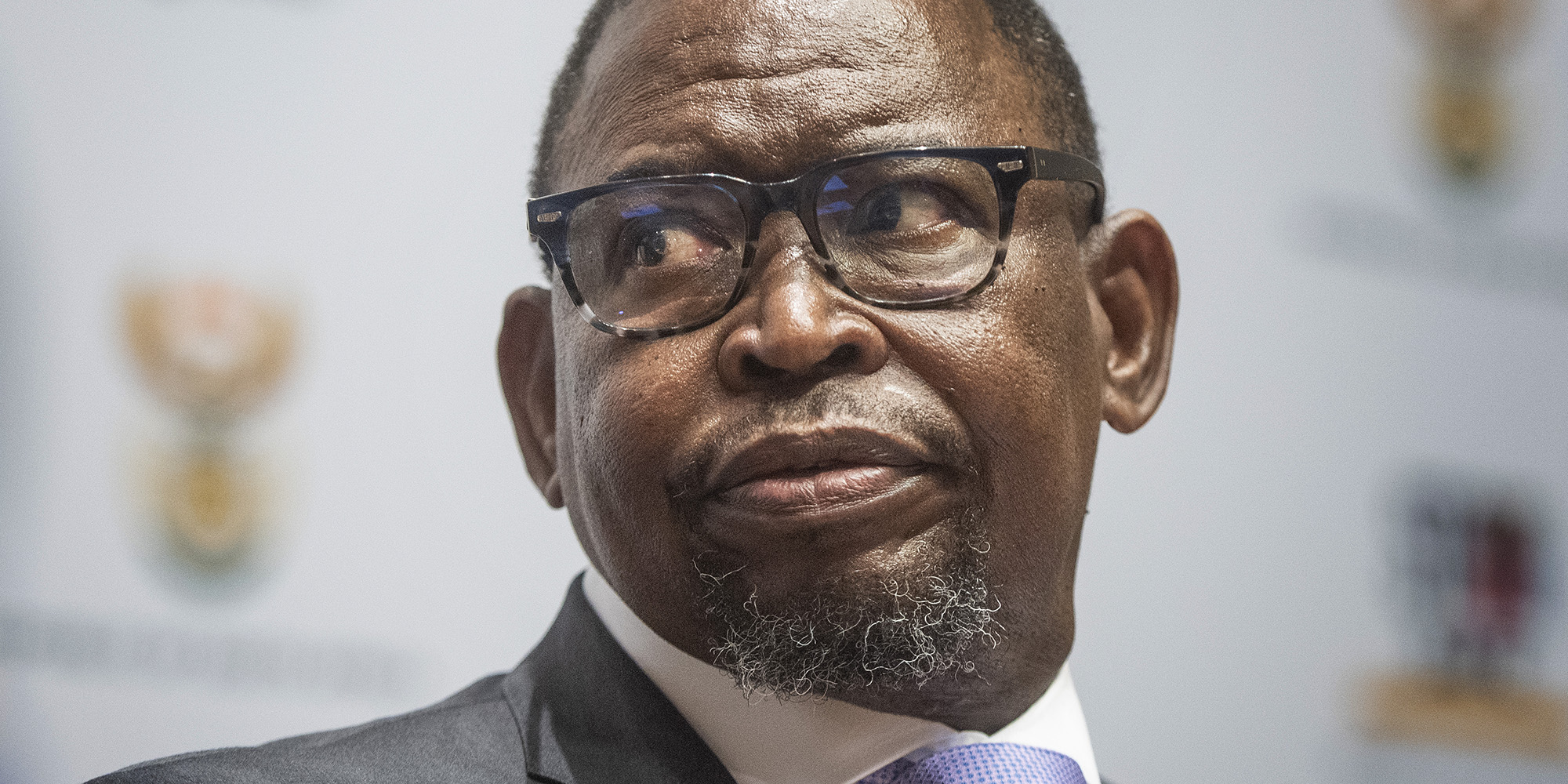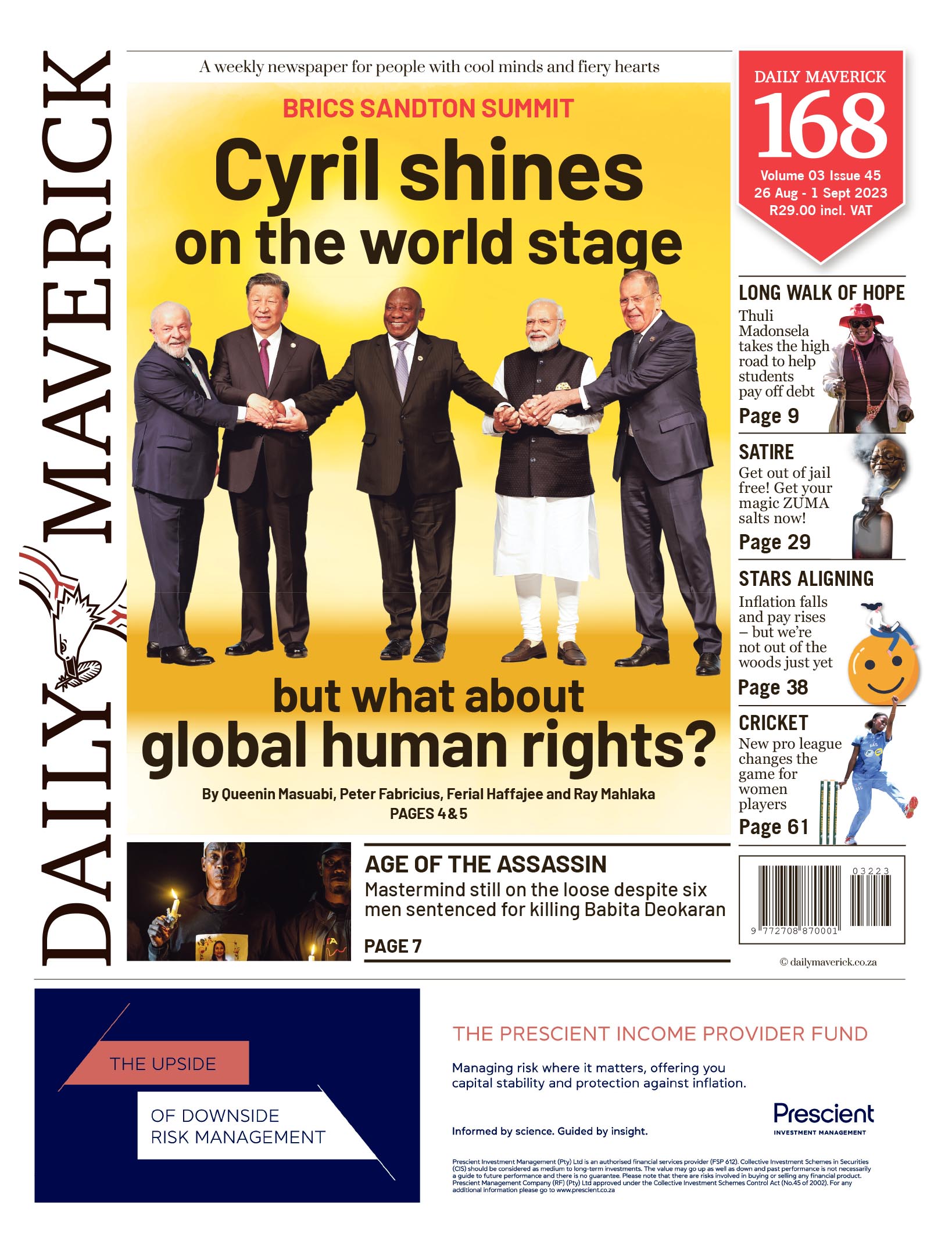The mooted development of a common currency by the BRICS group of emerging nations and an alternative payment system so that they rely less on the mighty US dollar is increasingly viewed as a non-starter by prominent decision makers.
Finance Minister Enoch Godongwana is the latest to pour cold water on proposals for BRICS nations – Brazil, Russia, India, China and South Africa – to dethrone the US dollar, saying it is not a consideration at a policy level, or even feasible soon.
“I think most of the hullabaloo about the BRICS currency is a debate which is misplaced. This is something that we’re not discussing at all. So, for now, it’s too early to even venture into that debate,” said Godongwana in a Daily Maverick interview.
He said the proposals for a common currency and alternative payment system were initially presented for debate to the BRICS heads of state, who then referred it to the finance ministers of the emerging nations to probe its merits.
“The ministers of finance are preoccupied with different things than common currency. We are not likely to find each other easier on the common currency question,” said Godongwana, who chairs the BRICS workstream of finance ministers, tasked with building mechanisms for cooperation in areas of economic development, sustainable finance, payment areas, and others.
Godongwana plans to convene a meeting with the BRICS finance ministers in October on the sidelines of the annual meetings of the World Bank and the International Monetary Fund in Morocco to discuss other ways in which the nations can deepen the use of their currencies to conduct trade and financial transactions.
Unseating the dollar is not feasible
Decision-makers such as Godongwana and others are against unseating the dollar because of its importance. The dollar is considered the world’s de facto global currency, owing to the US’s mature economy, transparent fiscal and monetary policies, and globally open trade environment. And the dollar is already entrenched in the economies and public finances of BRICS countries.
In South Africa’s case, about 11% (or R543.3-billion) of the government’s gross debt of R5-trillion is denominated in foreign currencies (including the dollar), according to the latest budget documents. So, walking away from the dollar will not be easy, said Godongwana.
But the BRICS heads of state seem to be divided on this matter, with Brazil’s President Lula da Silva pitching for a common currency during the three-day BRICS Summit in Johannesburg. Da Silva said the creation of a currency for trade and investment transactions between BRICS members “increases our payment options and reduces our vulnerabilities”.
BRICS nations such as Brazil, Russia, and China have argued that the dollar is volatile, as seen in its wild swings every time the US central bank makes interest rate decisions or there are any signs the US economy is slowing. This volatility creates a financial headache for BRICS members, which makes their dollar-denominated debt more expensive to service.
In addition to a common currency, Brazil, Russia and China are pushing for the development of an alternative payment system to the globally recognised Swift – an alternative one that bypasses the West, and enables trade and cross-border payments among the BRICS nations. Swift is a payment system that is used by more than 11,000 banks and financial institutions worldwide (including those based in BRICS nations), and handles 42 million messages a day, facilitating trillions of dollars’ worth of transactions. But Western nations, including the EU, US, Canada and the UK, have targeted Swift as a way to impose sanctions against Russia (for its invasion of Ukraine) by banning the country’s banks from using the payment system.
Godongwana said the introduction of a common currency and alternative payment system will be complex to implement because such proposals also cut across the mandates of central banks, which are tasked with protecting the value of currencies, and the stability of financial systems.
“It’s an issue for the governors of central banks because they manage payment systems and they know what they are talking about. I don’t want politicians to meddle on that issue,” he said.
The complexity of developing a common currency (or even an alternative payment system) is that BRICS nations are vastly different; they differ in their policy deployment, GDP generation, currency management, interest rates, and inflation policies, said Adriaan Pask, the chief investment officer at PSG Wealth.
“Achieving the required level of integration would be exceedingly complex. Furthermore, it is necessary to evaluate whether the effort invested in creating a BRICS reserve [or common] currency is even worthwhile,” he said. The complexity would be further exacerbated by the confirmed addition of six more countries (Saudi Arabia, UAE, Iran, Argentina, Ethiopia and Egypt) to the BRICS bloc.
Enter the BRICS Bank
A proposal that Godongwana said is feasible and worth exploring is the increased use of BRICS currencies when conducting trade and financial transactions among the nations.
To do this, the New Development Bank (NDB), the Shanghai-based lender better known as the “BRICS Bank” that mainly funds infrastructure and sustainable development projects, will be targeted as the institution will start lending other currencies of emerging nations. How the NDB’s funding and lending works is that it borrows money on the Chinese market, funding projects from the proceeds of its bond issuances that are traditionally denominated in the renminbi/yuan. It is exploring ways to fund more projects in rands, as it recently did when it raised R1.5-billion in the domestic currency and Indian rupees. “We’ve been arguing particularly with the NDB, that it must intensify servicing us [BRICS countries] in our local currencies,” said Godongwana.
The NDB has admitted countries as members into the bank but is not formally included in the BRICS bloc. For example, it admitted the UAE and Egypt long before they were formally incorporated into BRICS. Including countries as members of the NDB paves the way for the bank to extend more funding in local currency, making its reach far and wide. A spokesperson for the NDB told Daily Maverick it is continually looking to expand the number of countries that are part of its membership, without naming them. Uruguay is one of the countries waiting to be admitted.
“The NDB’s membership is open to all members of the United Nations. Under the guidance of our board of governors and board of directors, we are actively engaging with countries that share our vision and values, and who can contribute to our mission.” DM
This story first appeared in our weekly Daily Maverick 168 newspaper, which is available countrywide for R29.






